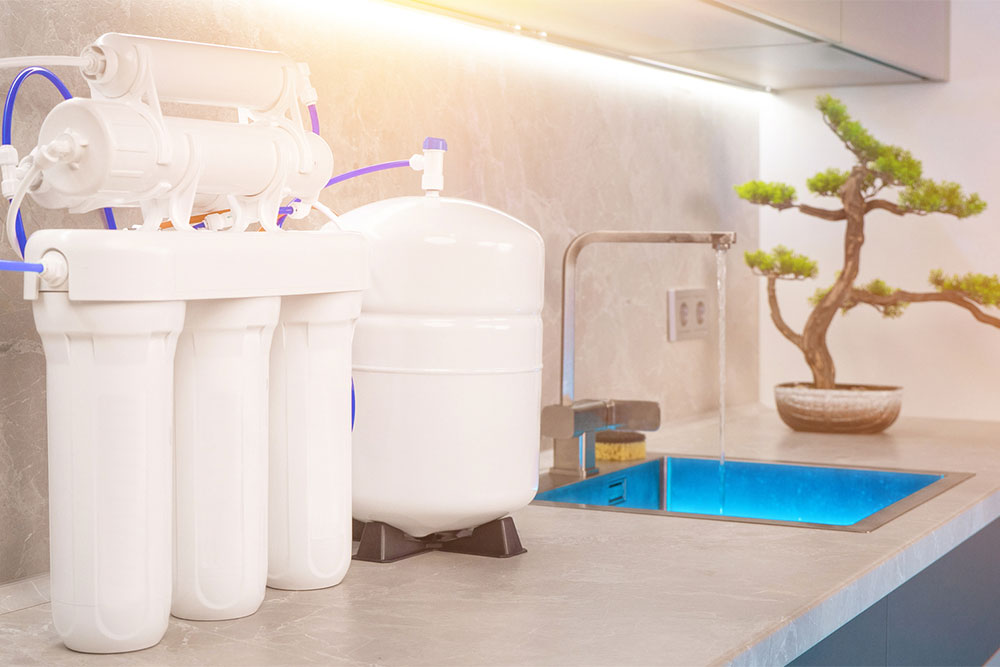
8 things to consider before choosing a water purifier
Most residents have access to clean and safe drinking tap water. The water supply chains receive regular checks and maintenance so people do not have to face inconvenience. However, since it is a huge supply body, it is difficult to control the contaminants with which the water comes in contact. Sometimes, even some minor corrosion can have a huge impact on people’s health. It is, therefore, essential to have an effective water purifier at home.
Water quality
The first step to selecting the right water filter for your home is to identify its need. Individuals can test their water quality with available water testing kits or contact the local facilities or water supply offices for water quality analysis. This step will help them identify the contaminants present in the water. Generally, heavy metals like arsenic, lead, chloride, pesticides, microbes like bacteria, viruses, and other parasites are the contaminants found in water. One might not necessarily find all of these contaminants and impurities. However, understanding the pollutants will help them determine the right kind of purifier required for home water purification. Remember to choose the right purification system based on the contaminants rather than high-performing technology ratings.
Purification technology
The next step is to research the different water purification technologies and their effectiveness. The time spent on this step will help determine whether or not the individual ends up making the right choice. Reverse Osmosis or RO purification system is one of the most commonly available technologies in the market. It is used in water purifiers to help effectively purify water against heavy metals and dissolved solids. Ultraviolet (UV), on the other hand, helps eliminate harmful bacteria, viruses, and other parasites that can lead to health concerns. Activated carbon filtration systems provide devices for heavy metals like chlorine and lead, harmful organic compounds, and pesticides. If the water has suspended particles, one must choose a water purifier with ultrafiltration or UF system. If there are multiple contaminants present in the tap water, consider combining more than one technology for comprehensive water treatment.
Consumption capacity
It is equally important to check the filtration capacity and drinking water needs of the household. Buying a water purifier would be of little use if it can’t meet the daily consumption needs. Cross-check if the purifier storage capacity is required or needs frequent refilling. An additional factor would be to consider one during peak usage hours to identify and make available clean water for everyone’s access.
Filter replacement
When adding a household appliance like a water purifier, it is important to keep in mind that maintenance is required. Care instructions should be checked before purchasing a water purifier. These instructions contain valuable information on how often one needs to replace filters or clean the device. Additionally, it is important to consider the availability and the cost of the replacement or other parts of the machine. For those who lead busy lives, it is better to opt for purifiers that require minimal maintenance and are easy to clean.
Energy efficiency
Different water purifiers are based on different working systems. Therefore, it is important to understand and learn how the purifier works and how it impacts energy consumption. This information can help one find an energy-efficient option that will help save some dollars on utility bills over time. Look for features such as low power consumption, automatic shut-off, and energy-efficient standby modes when selecting a purifier. Even if these features are not available, installing a water purifier at home is an excellent way of saving the environment. It helps in minimizing wastage and offers other environmentally friendly benefits.
Additional features
There are multiple features and functionalities available in water purifiers that can influence a customer’s decision to choose a product. These features aim to provide users with improved usability and convenience. Some of these features include smart connectivity, LED indicators for water filter status, and user-friendly control panel layouts. Some additional advanced features that come at a higher price include a self-cleaning mechanism, customization panels, and leak detection systems. Customers who prefer customization can look for water purifiers with customizable settings options to meet their specific requirements.
Longevity
Another important factor to consider when trying to choose the right purifier for home use is to look at the longevity of the water device. The durability and build quality of the device should be taken into consideration, as well as factors like after-sales service and the reputation of the seller. Nobody wants to deal with a seller who has a bad reputation, and poor after-sales service can make it difficult to resolve any problems that may arise with the purchase of the water purifier. Despite any discounts offered, buyers may end up wasting their time and energy trying to get the company to fix any issues that arise.
Budget
When setting a budget for a water purifier, it is important to consider both the purchase and the potential maintenance costs. To find the best options that suit one’s budget, one should compare different price points for water purifiers available at different places and include different models for analysis. Additionally, when comparing prices, take into account filter replacement and installation charges. These factors will help one create a proper budget and select the most cost-effective water purifier that meets the needs.


